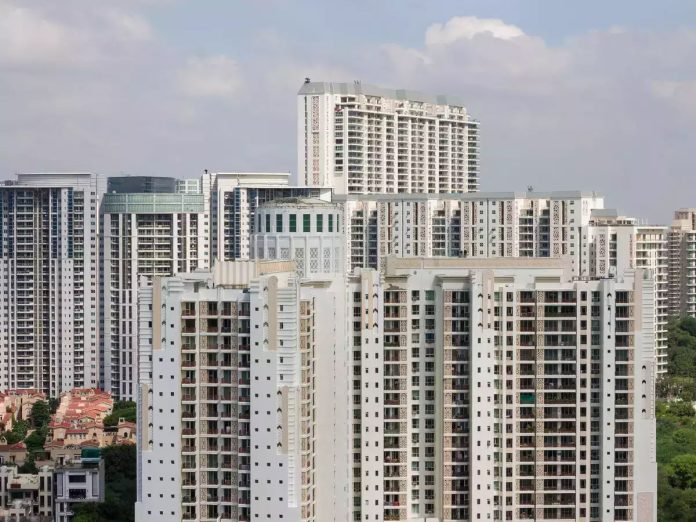Thursday, August 22, 2024 Genting Group Chairman Lim Kok Thay has expressed the conglomerate’s interest in exploring opportunities to develop integrated casino resorts in the United Arab Emirates as the country considers legalizing gambling. Speaking to shareholders during the Genting Singapore Ltd. annual meeting on April 18, Lim noted that it is improbable for an international tender solely for casino development to be issued in the Middle East.
The minutes from the meeting were later made public in a stock exchange filing on Friday. Genting Group’s potential interest in entering the UAE’s gaming industry comes on the heels of the country’s establishment of a federal regulatory body for gaming last year. The move to potentially introduce casinos marks a significant shift for the UAE, where Islamic, or Shariah law, forms the cornerstone of its legal framework.

Under Islamic law, gambling is strictly forbidden, and in the UAE, those found guilty of such activities can face severe penalties, including fines, imprisonment for up to two years, or both. The possibility of casinos in the UAE has sparked considerable attention, with the emirates of Abu Dhabi and Ras Al Khaimah emerging as leading candidates to host these developments. These regions have taken the lead in exploring the introduction of casinos, positioning themselves ahead of their neighboring emirate, Dubai.
Despite its reputation for luxury and entertainment, Dubai has temporarily shelved any immediate plans to legalize gambling, according to a Bloomberg report from November that cited sources familiar with the matter. As the UAE navigates this potential transformation, Genting Group’s interest underscores the growing anticipation within the global gaming industry. Should the UAE move forward with legalizing casinos, it would represent a groundbreaking development in a region where gambling has long been prohibited.
The decision will likely have far-reaching implications, not just for the UAE’s legal and cultural landscape, but also for international gaming conglomerates eyeing new opportunities in the Middle East. In Abu Dhabi, potential sites for casino developments have been explored, including Yas Island, a vibrant hub known for hosting the Yas Marina Formula One Circuit and popular attractions like Ferrari World and Warner Bros. theme parks.
Another location under consideration is a plot near the city’s port, reflecting Abu Dhabi’s interest in strategically positioning itself as a prime destination for entertainment and tourism. Meanwhile, in Ras Al Khaimah, Las Vegas-based Wynn Resorts Ltd. embarked on the construction of a $3.
9 billion integrated resort last year, slated for completion in 2027. Although Wynn Resorts has indicated that the project will feature “gaming” facilities, the Ras Al Khaimah government has not provided specific details regarding the nature of these gaming areas. This ambiguity has left room for speculation as the region contemplates the potential integration of casinos into its tourism landscape.
The UAE’s potential casino market holds the promise of surpassing Singapore’s in terms of revenue, according to a report released on May 14 by Bloomberg Intelligence analysts Angela HanLee and Lea El-Hage. This projection highlights the significant growth opportunities that could emerge if the UAE proceeds with legalizing and developing its casino industry. The report underscores the strong potential for the UAE to establish itself as a major player in the global gaming market, given its strategic location, affluent population, and well-established tourism infrastructure.
If the UAE’s casino market reaches its anticipated scale, it could rival or even exceed the revenue generated by Singapore, which has long been considered a benchmark in the industry. Singapore’s success as a casino hub has been driven by its two iconic integrated resorts, Marina Bay Sands and Resorts World Sentosa, both of which have attracted millions of visitors and generated substantial revenue since their inception. The UAE, with its ambitious development plans and a reputation for luxury tourism, could potentially follow a similar trajectory, drawing in high-net-worth individuals and international tourists.
As the UAE explores the possibility of entering the casino market, it faces the challenge of balancing its cultural and religious values with the economic benefits that a thriving gaming industry could bring. The decision to move forward with casino development would not only reshape the UAE’s tourism landscape but could also position it as a new hotspot for global gaming, potentially outpacing other established markets in the region. The Bloomberg Intelligence report suggests that, with the right regulatory framework and strategic investments, the UAE could unlock a lucrative new revenue stream that enhances its status as a premier destination for luxury and entertainment.
.


















